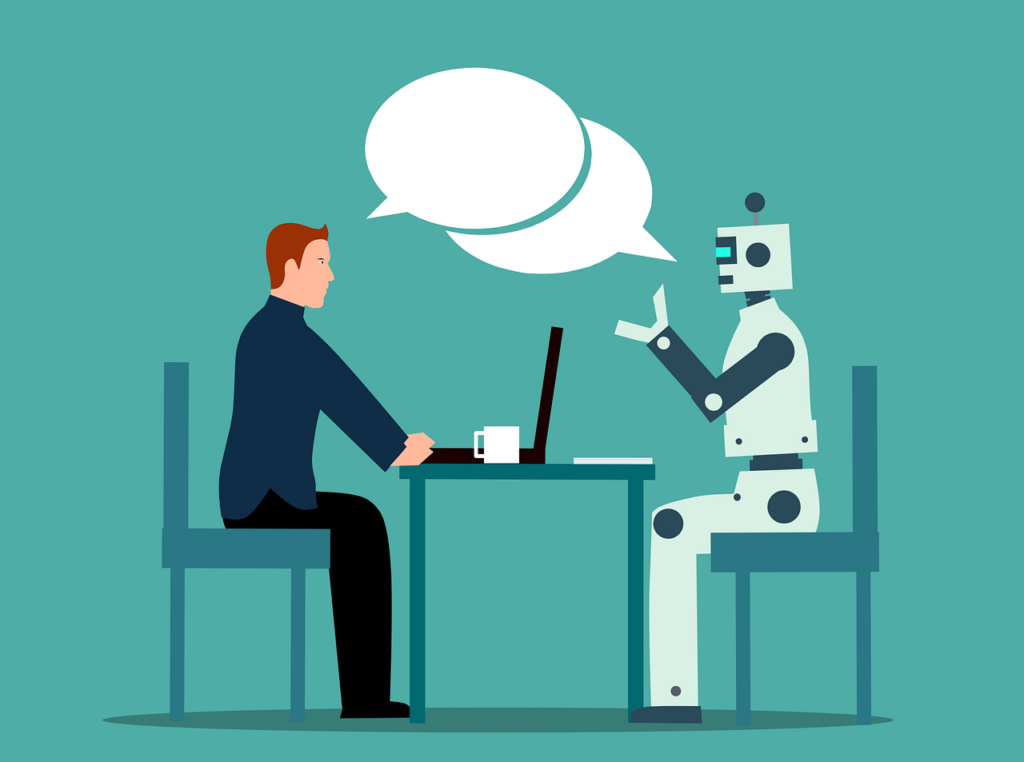The Contemporary Manual for AI-Based Interviews
The infusion of AI within the recruitment sphere is causing a revolutionary shift in the way enterprises identify and recruit talents. AI interviews have emerged as a pioneering force in this transformation, bringing about substantial enhancements in efficiency, objectivity, and the candidate experience.
When getting ready for AI interviews, candidates should not merely concentrate on technical skills but also emphasize their problem-solving capabilities and adaptability. Companies are now more inclined towards candidates who can showcase a profound comprehension of algorithms and data structures, along with the ability to convey complex technical concepts proficiently. Moreover, presenting experiences related to real-world applications of AI, such as projects or internships, can make a candidate stand out among the competition.
In addition to technical proficiency, employers are also on the lookout for candidates who possess robust ethical reasoning and empathy when involved in AI projects. It is of utmost importance for candidates to demonstrate an understanding of the ethical implications in AI development, like biases in algorithms or privacy concerns. Employers wish to see that candidates can handle these intricate moral predicaments and make decisions that prioritize the well-being of all stakeholders involved. By highlighting both technical prowess and ethical consciousness during AI interviews, candidates can position themselves as comprehensive professionals ready to confront the challenges of contemporary AI development.
This manual offers an exhaustive examination of how AI interviews operate, their benefits, and how organizations can implement them effectively to optimize their hiring processes.

Table of Contents
Insights into AI Interviews
AI interviews employ advanced algorithms and machine learning to evaluate candidates. These systems have the capacity to analyze multiple data points from video interviews, written responses, and other inputs to assess a candidate’s qualifications, skills, and cultural compatibility. The technology underlying AI interviews encompasses natural language processing (NLP), facial recognition, and sentiment analysis to provide a comprehensive evaluation.
Core Elements of AI Interviews:
Video Scrutiny: AI systems can scrutinize facial expressions, body language, and speech patterns to measure confidence, sincerity, and emotional responses.
Natural Language Comprehension: NLP enables AI to understand and appraise the content of a candidate’s responses, focusing on the relevance, clarity, and consistency.
Behavioral and Personality Evaluation: AI can assess behavioral traits and personality characteristics by analyzing responses to specific questions designed to evoke certain traits.
Skill Assessment: AI can evaluate technical and soft skills through predefined evaluations, coding challenges, or scenario-based questions.
Advantages of AI Interviews
The integration of AI in interviews presents several advantages to both employers and candidates:
1.Efficiency and Swiftness:
AI interviews considerably minimize the time required to screen and evaluate candidates. Automated systems can handle applications and conduct initial screenings at a much faster pace than human recruiters, enabling organizations to expedite their hiring processes.
2.Objectivity and Consistency:
AI systems eradicate human biases that might influence hiring decisions. By relying on data and standardized criteria, AI guarantees a fair and consistent assessment of all candidates, resulting in more objective hiring decisions.
3.Enhanced Candidate Experience:
Candidates can complete AI interviews at their convenience, leading to a more flexible and pleasant experience. Additionally, AI can offer immediate feedback and updates, keeping candidates informed throughout the process.
4.Data-Driven Insights:
AI interviews generate an abundance of data that can be analyzed to enhance the recruitment process. Employers can gain insights into which assessment criteria are most predictive of success and adjust their hiring strategies accordingly.
5.Scalability:
AI systems can handle a large volume of applications concurrently, facilitating organizations to scale their hiring efforts without compromising on quality.
Optimal Approaches for Implementing AI Interviews
To implement AI interviews effectively, organizations should adhere to these optimal practices:
1.Define Clear Goals:
Establish the key competencies, skills, and traits you aim to assess through AI interviews. This assists in selecting the appropriate AI tools and designing relevant questions and assessments.
2.Choose the Right AI Tools:
Evaluate various AI interview platforms to find one that aligns with your goals and offers the features you require. Look for tools that provide robust analytics, customizable assessments, and seamless integration with your existing HR systems.
3.Develop Standardized Inquiries:
Create a set of standardized inquiries that align with the competencies you are assessing. Ensure these inquiries are designed to elicit meaningful responses that the AI can analyze effectively.
4.Train the AI System:
AI systems need training with a diverse range of data to ensure accuracy and fairness. Use historical hiring data and input from various sources to train the AI, minimizing biases and enhancing its predictive capabilities.
5.Ensure Transparency and Fairness:
Maintain transparency with candidates regarding the use of AI in the interview process. Provide information on how the AI system functions, what it assesses, and how their data will be utilized. Ensure your AI system complies with legal and ethical standards to promote fairness.
- Monitor and Evaluate Performance:
Continuously monitor the performance of your AI interview system. Collect feedback from candidates and hiring managers, and analyze the outcomes to identify areas for improvement. Regularly update and refine the AI system to enhance its accuracy and effectiveness.

The Prospects of AI Interviews
The future of AI interviews holds great promise, with continuous technological progress set to further enhance their capabilities:
1.Enhanced Accuracy:
Ongoing advancements in machine learning and AI algorithms will improve the precision of candidate evaluations, leading to more informed hiring decisions.
2.Integration with HR Systems:
Seamless integration with applicant tracking systems (ATS) and other HR tools will streamline the recruitment process, making it more efficient and coherent.
3.Enriched Candidate Engagement:
AI systems will provide more interactive and captivating interview experiences, including real-time feedback and adaptive questioning.
4.Ethical AI:
There will be a heightened focus on developing ethical AI systems that ensure fairness, transparency, and accountability in the hiring process.
Concluding Remarks
AI interviews are reshaping the recruitment terrain, offering numerous benefits in terms of efficiency, objectivity, and candidate experience. By adhering to best practices for implementation and continuously refining their AI systems, organizations can leverage AI interviews to optimize their hiring processes and make data-driven decisions. As technology keeps evolving, AI interviews will become an even more indispensable part of modern recruitment, helping companies identify and recruit the best talents with greater accuracy and fairness.
AI interviews are becoming increasingly prevalent in the recruitment process, presenting both benefits and challenges for candidates. Understanding how to prepare for and navigate these interviews effectively is essential for success. By familiarizing oneself with the technology and practicing for various scenarios, candidates can increase their chances of impressing potential employers. Embracing the opportunities that AI interviews offer can lead to exciting career prospects in a rapidly changing job market. Stay informed, stay prepared, and seize the opportunities that AI interviews present to showcase your skills and potential to prospective employers.
Vhire.ai is an advanced asynchronous video interview software designed for automated interviewing and candidate assessment. It offers a range of powerful features to streamline the recruitment process:
- Asynchronous Video Interviews: Candidates can record their responses at their convenience, allowing you to review them at a time that suits you.
- Automatic Candidate Screening: Our system evaluates and ranks candidates, highlighting the most promising applicants.
- Multi-Dimensional Scoring: Receive detailed, explainable scores for each candidate, complete with justifications for each rating.
- Automatic Resume Parsing: Extract key information from resumes and apply tags for quick and efficient filtering.
- AI-Generated Questions: Ensure a comprehensive assessment with AI-generated interview questions tailored to each specific role.



